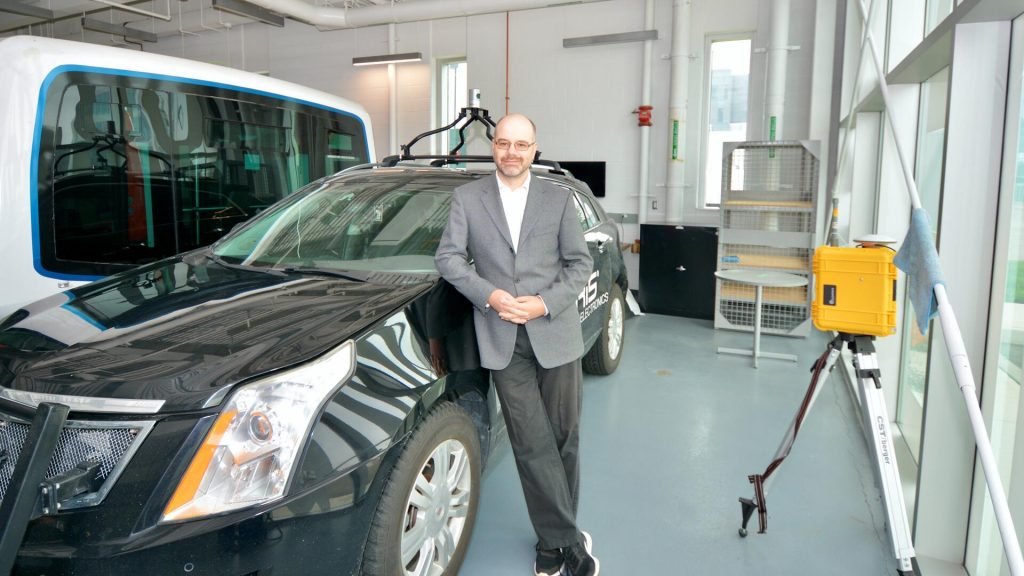
UWaterloo, federal government and Magna International partner to enhance autonomous vehicles’ safety
September 27, 2021
By Manufacturing AUTOMATION
 Photo: University of Waterloo
Photo: University of Waterloo University of Waterloo’s engineering students, the federal government and Magna International have teamed up on a project that will help enhance safety and security of autonomous vehicles.
Sebastian Fischmeister, a professor of electrical and computer engineering at the university, is heading the $1.6 million project. Theories, methods and tools will be developed to produce complex automotive software for connected and automated vehicles. Fischmeister heads the initiative as the NSERC/Magna Industrial Research chair in automotive software for connected and automated vehicles. He is also a computer science professor and executive director of the Waterloo Centre for Automotive Research (WatCAR). Safety-critical systems and connected and autonomous vehicles are the main research interest areas for Fischmeister.
Magna and the Natural Sciences and Engineering Research Council of Canada (NSERC) are each contributing $600,000 over five years. The university will provide $400,000. Magna is also providing a test vehicle for the project.
With the financial support offered by Magna and NSERC, the university hired Yash Vardhan Pant, a new professor of electrical and computer engineering, for this project.
“The automotive industry faces challenges as modern vehicle features heavily rely on software with new approaches such as machine learning that promise significant improvements,” said Fischmeister, director of the Real-Time Embedded Software Group at Waterloo. “While industry races to automate vehicles, it is vitally important to ensure those vehicles remain safe and secure.”
Fischmeister and Pant’s research results are expected to help Magna engineers develop new safety and security features in automobiles. The developed software is to be re-used in developing more complex products.
“The importance of safety in automotive systems cannot be overstated,” said Jim Quesenberry, director of research and development at Magna. “By providing a reference autonomous vehicle system, we hope to enable the research team to develop meaningful, automotive-grade solutions from the start. To meet the demands of autonomous and connected systems Magna is excited to work with the University of Waterloo, and the deep knowledge and expertise that they bring to this initiative.”
Magna has been a supporter of engineering and other faculties at Waterloo. In 2018, it contributed $200,000 to the new Waterloo Artificial Intelligence Institute (Waterloo.AI).
“We are committed to research that goes beyond imagination, research that positively impacts the world,” said Mary Wells, dean of Waterloo Engineering. “Industry partnerships that are rooted in real-world needs, like this important project with Magna, are the lifeblood of those research programs.”
Advertisement
- Ontario invests in five manufacturing companies in Parry Sound district
- Celestica acquires PCI Limited to expand capabilities in key markets